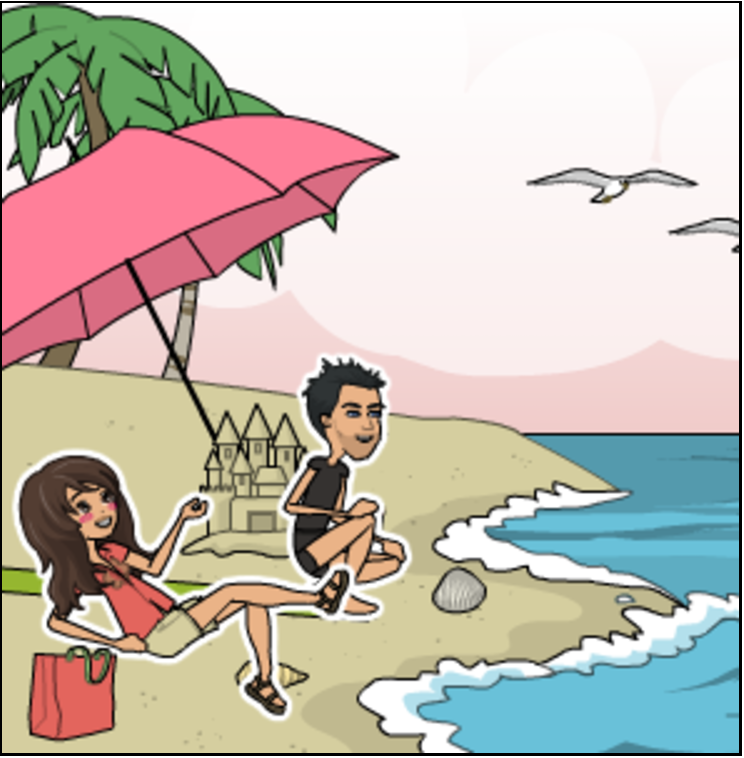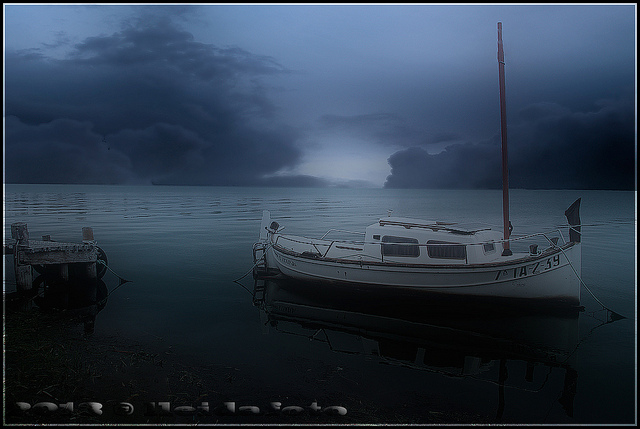Descripción de la tarea

Lee la interesante historia de este superviviente y aprende a redactar luego una historia en pasado.

A.Comprensión escrita de narraciones de aventuras (20 pts)
Lee el texto y contesta las preguntas:
|
Unexpected adventure
José Salvador Alvarenga was rescued in January 2014 in the Marshall Islands in the Pacific Ocean. He suffered from severe dehydration, back pain and swollen joints at the moment of the rescue. He said he was able to survive more than a year at sea -exactly thirteen months-, travelling over an area of 8,000 km in a little boat by catching fish, birds and turtles with his hands. An accompanying fisherman, Ezequiel Córdoba, died while they were at sea. His ordeal apparently began when he left Mexico for a fishing one-day trip in December 2012 and was hit by a storm, which sent him off course. Alvarenga said that he stayed alive by drinking urine, rainwater and the blood of birds. “I didn’t know the time, nor the day. I only knew the sun and the night,” he said. “I never saw land. Pure ocean. I was worried I would go crazy.” After his friend’s death, he sometimes thought of suicide, but he prayed and prayed. Finally, the miracle: he arrived at the coast. Text adapted from: bbcnews - Joints: articulaciones - Ordeal: dura experiencia - Off course: sin rumbo - To pray: rezar
|
1. Contesta a las preguntas:
a) What did he drink in the boat?
b) What physical damage did he have?
c) Is he a religious man? Why?
2. Completa las ideas de ambas columnas según corresponda:
1.
2.
3.
4.
5.
|
|
B.Reflexión gramatical y comprensión oral (50 pts)
3. Completa estas oraciones utilizando el pasado simple o el pasado continuo, según sea necesario:
a) When Alvarenga was found, he _____________________ (wear) a pair of underpants.
b) While they were fighting against the storm, the motor of the boat _____________________ (break) down.
c) He _____________________ (have) some accidents while he _____________________ (sail).
d) The doctor said his condition _____________________ ( not be) very good, but he _____________________ (get) better.
4. Escucha la historia de las personas que lo encontraron en la playa. Ordena las viñetas según escuches:
| Audio de elaboración propia |
1.
2.
3.
4.
5.
 |
 |
 |
| A | B | C |
 |
 |
|
| D | Imágenes de elaboración propia con Pixton | E |
5.Ahora completa los huecos del texto con los conectores de secuencia que ordenan y unen las ideas. Te damos la primera palabra:
|
Then, after that, finally, first, later |
We decided to go to the beach early in the morning. First, we drove to the coast and when we arrived, we took all our stuff out of the car. We opened the umbrella and we put the towel on the sand to lie on it. We put some sun lotion. José decided to get into the water for a swim. But he saw something strange. A man in ragged clothes was waving towards us. He was in an old boat. We helped him get off the boat and called the police.
6.Cambia estas oraciones de voz activa a voz pasiva:
a) The boy and the girl saw the man.
b) The police received an emergency call.
c) Two policemen took the man to hospital.
C.Narración de acontecimientos sencillos (30 pts)
7.Elabora ahora un pequeño texto narrativo sobre una aventura o algo insólito que hayas vivido (no necesariamente duro, como el de la lectura de la tarea). Se trata de contar algo sorprendente, que no pase todos los días.
- Guiaremos tu redacción distribuyéndola en tres secciones o párrafos.
- Dentro de cada párrafo simplemente tendrás que ir contestando a las preguntas con oraciones completes. Así irás redactando tu texto.
- Añade conectores adecuados (and, but, also, too, first, then, later, finally) donde creas conveniente
- Inventa en la historia todo lo que sea necesario para contar la historia lo mejor posible; se trata de no complicar el relato demasiado.
|
Introduction: give a sentence explaining what, when and where it happened
|
|
Body: When and where did it happen? Why were you there? What were you doing when it happened? Who were you with? What happened? Tell in a short, easy way how it happened (three ideas)
|
|
End: Was it a happy or a sad ending?
|
![]()
Esta tarea está relacionada con la Tarea Colaborativa del Módulo IV.
